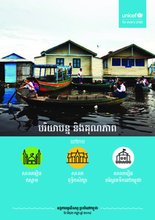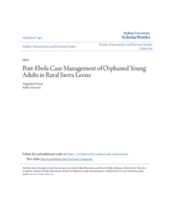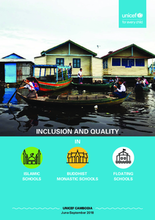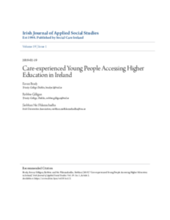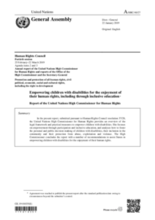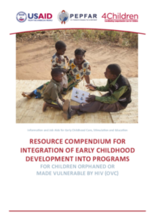Displaying 101 - 110 of 349
This study examined the possible differences in educational level by comparing Finnish national register data for 814 former reform school (RS) residents in four cohorts (placed in out-of-home care in 1991, 1996, 2001 and 2006) to 4021 of their peers in the general population matched by gender, age, and place of birth.
This research investigated the psychosocial-support provision for learners from child-headed households (CHHs) in five public high schools in South Africa.
This research study was commissioned to generate a better understanding of three school communities in Cambodia: Islamic schools, Buddhist monastic schools, and floating schools with a focus on identifying challenges in delivering quality and inclusive education.
The purpose of this transcendental phenomenological study (a doctoral dissertation) was to explore how post-Ebola student-orphans enrolled in an agricultural university in rural Sierra Leone experienced post disaster specialized case management to enhance student performance.
This research study was commissioned to generate a better understanding of three school communities in Cambodia: Islamic schools, Buddhist monastic schools, and floating schools with a focus on identifying challenges in delivering quality and inclusive education.
The increasing importance of higher levels of formal education and training leads to an extended transition phase to adulthood in Austria. This article explores how care leavers are confronted with new disadvantages and with a lack of political and societal attention.
This article reports a three-stage process of developing a model of teacher education to encompass provision for Looked After Children in schools in the UK.
This brief paper focuses on the question of how care-experienced young people in Ireland fare in accessing opportunities in higher education.
In the present report, submitted pursuant to Human Rights Council resolution 37/20, the United Nations High Commissioner for Human Rights provides an overview of the legal framework and practical measures to empower children with disabilities.
Written for USAID and PEPFAR implementing partners, with a focus on OVC practitioners, this is a user-friendly compendium of current resources, information and job aids for early childhood care, stimulation and education.

